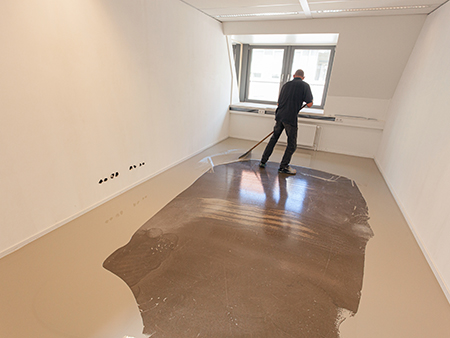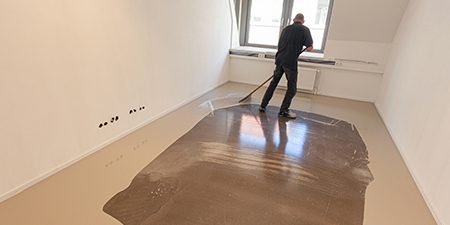
Before installing a resin bound surfacing system, such as LimeBound UV Stable Resin, it’s crucial to have a suitable substrate or base to ensure optimal performance and durability.
Why does the substrate matter for a resin surface?
The substrate, or underlying surface, plays a crucial role in determining the performance and durability of a resin surface. Here are a few reasons why the substrate matters:
Adhesion
The substrate acts as the foundation for the resin surface. Proper adhesion between the substrate and the resin is essential to ensure a strong bond. If the substrate is not suitable or properly prepared, the resin may fail to adhere correctly, leading to poor performance and potential delamination or detachment.
Stability
The stability and condition of the substrate influence the overall stability of the resin surface. A stable substrate provides a solid base for the resin, preventing movement or flexing that could lead to cracks or failure over time.
Surface preparation
The substrate needs to be properly prepared before applying the resin. Surface cleaning, removal of contaminants, and sometimes roughening the surface (using methods like sanding or etching) are essential to ensure good adhesion. Proper preparation helps the resin to penetrate the substrate and create a strong mechanical bond.
Compatibility
Different substrates have varying properties, such as porosity, moisture content, expansion/contraction rates, and chemical composition. It’s important to consider the compatibility between the substrate and the resin system being used. Some resins are specifically formulated for certain types of substrates, such as concrete, wood, or metal. Using the appropriate resin for the specific substrate helps ensure optimal performance and longevity.
Moisture and pH considerations
Certain substrates, like concrete, can contain moisture or have a high pH level, which can affect the resin’s curing process and performance. Moisture barriers or primers may be necessary to prevent moisture-related issues, such as bubbling, blistering, or adhesion problems.
CONTACT Limegate
Our key points to consider for the substrate:
Stability
The substrate must be stable and free from any movement or settlement. It should provide a solid foundation for the resin surface.
Drainage
Proper drainage is essential to prevent water accumulation and ensure longevity of the new resin bound surface. The substrate should have adequate drainage provisions, such as a permeable or porous base.
Strength
The substrate should have sufficient strength to withstand the intended traffic load. LimeBound Resin is designed for foot traffic and occasional vehicle traffic, so the substrate must be capable of supporting such loads. It is less ideal where vehicles regularly perform frictional manoeuvres such as 3-point turns.
Compatibility
The substrate should be compatible with the resin bound system. It should not contain any contaminants or materials that could adversely affect the bonding or performance of the resin.
Preparation
Proper preparation of the substrate is crucial. This may involve cleaning the surface, removing any loose materials or debris, and repairing any cracks or defects. The specific preparation steps will obviously vary depending on the existing substrate and site conditions.
More advice
It’s always important to consult our technical documentation for specific substrate requirements and base build-up details when using our LimeBound Resin Bound Surfacing system. These documents will provide you and your installer with detailed guidance on the recommended base construction, materials, and installation techniques to ensure a successful and long-lasting resin bound surface.
If you would like a copy of our base build-up sheets, or any further assistance, do please give us a call for a chat about your project, we look forward to being of assistance.


